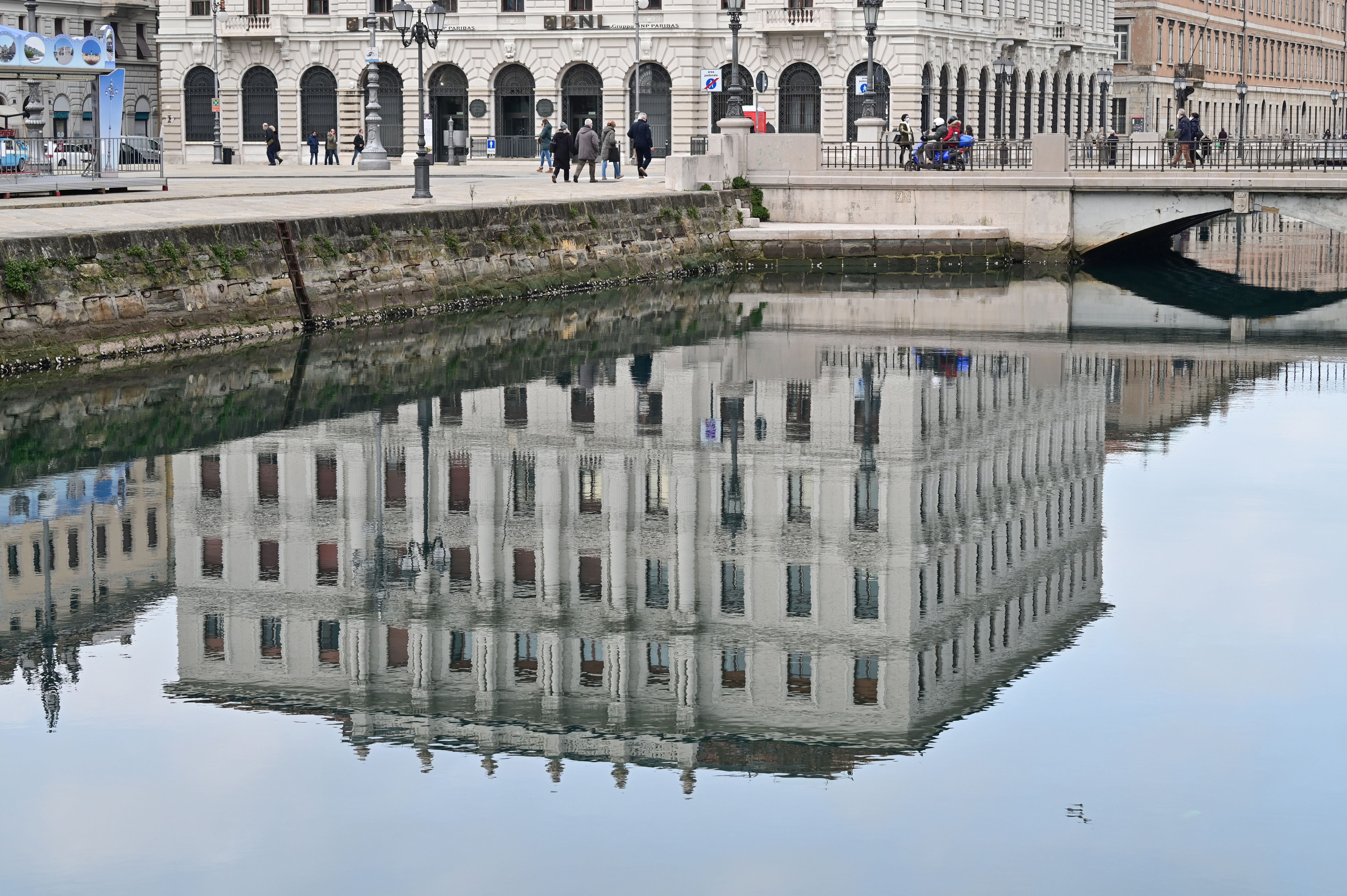‘An unfolding nightmare’: Trieste’s pioneering mental health system under threat, say campaigners
A world renowned treatment for mental illness is under political threat, reports Mark S. Smith

The Italian city that spawned one of the world’s most successful models for recovery from mental illness is facing growing pressure from the region’s hard-right government to dismantle its globally renowned system of community psychiatry.
Trieste, once the principal Adriatic seaport of the Austro-Hungarian empire, and its surrounding region of Friuli-Venezia Giulia tucked against the borders of Austria and Slovenia, has been a beacon of holistic psychiatry reform since the 1970s, when the late Franco Basaglia began closing the city’s mental asylum.
Basaglia’s work in Trieste ultimately led to the abolition of all asylums in Italy – called Law 180, promulgated in 1978, and still known affectionately today as Basaglia’s Law.
Now more than 4,000 people – along with dozens of prominent psychiatrists, including several from the UK – have signed a letter of protest condemning the regional government’s plans to downgrade its mental health service and instead introduce a system that provides new opportunities for profit and capital investment.
The petition list includes UK clinical psychiatrist and author Lucy Johnstone, John Jenkins, a former senior policy adviser in the Department of Health, the renowned US psychiatrist Harold Pincus, vice chair of the Department of Psychiatry at Columbia University’s College of Physicians and Surgeons and SP Sashidharan, a Glasgow-based psychiatrist and professor at Glasgow University’s Institute of Health and Wellbeing.
Seven former directors from the department of mental health services in Trieste and Friuli-Venezia Giulia have also signed their names in protest.
“For nearly 50 years, Trieste has had one of the best mental health systems in the world. It is an open-door approach that respects the rights of the individual and is built on a network of social support. Many of us in this country and across the world, working in mental health, have been hugely influenced by the Trieste model,” said Professor Sashidharan.
“The threat to this model of care by right-wing politicians in Trieste and its region is of huge international concern. There is a real risk that the best mental health system in the world would be dismantled for political purposes.”
Declaring that freedom itself is therapeutic, Basaglia’s radical idea was that recovery from mental illness is impossible when people are deprived of human rights and dignity.
In place of the asylum, Basaglia established a network of walk-in community mental health centres, from which he advanced his therapeutic principles of freedom and individualised recovery models, which he then combined with a myriad of community services.
His vision evolved into a unique model of de-institutionalisation and social psychiatry, incorporating community employment, housing, job training, the arts, recreation and more. The model, which soon spread to the wider Friuli-Venezia Giulia region, for decades has remained a World Health Organisation-designated “centre of excellence for mental health recovery”.
Its methods and principles have been emulated in more than 30 countries, including Canada, Spain, France, Australia, Brazil and parts of the UK – including at least half a dozen NHS trusts across England and Wales. A campaign is now underway to establish the model as a pilot programme in Scotland.
Psychologists, psychiatrists and social activists from around the world who visited Trieste over the past four decades consider the work done there as a revelation.
In terms of recovery outcomes, as well as drastically reduced costs, it remains one of the most successful models of mental health treatment anywhere. In Trieste itself, suicide rates have halved over the past 20 years, and rates of drug addiction, hospitalisation, re-admission and homelessness have all plummeted.
A recently published WHO report noted that the Trieste model is also best placed to help those suffering from mental illness amid the COVID-19 pandemic. The report added that the pandemic had “highlighted the inadequate and outdated nature of mental health systems and services worldwide”.
However, the politics of Italy shifted dramatically to the right. And the regional government of Friuli-Venezia Giulia, under whose political control Trieste rests, is no exception. A 2018 election handed the region’s presidency to Massimiliano Fedriga of the far-right Northern League, which shares power with a coalition of right-wing allies, including Forza Italia and the Brothers of Italy.
Almost immediately, Fedriga and his allies declared war on the “Basaglians”, characterising their opposition as part of the coalition’s fight against the left. Now, under the auspices of financial cutbacks related to Covid 19, efforts to dismantle the system have accelerated.
Dr Roberto Mezzina, a former director of mental health services in Trieste, who is now the chairman of the International Mental Health Collaborating Network and advises on establishing the Trieste model around the world said: “The reduction of public mental health services in Trieste and Friuli-Venezia Giulia, which have been operating with exceptional success for more than 40 years, has already started. We are watching this nightmare unfold with great alarm.

“The regional government’s objective is to reduce or abolish the community mental health centres under the pretence of their right-wing ideology and Covid-19 cutbacks.
“But this is really about bringing back the old system of hospital beds, long-term residential facilities and outpatient visits based on medication. This has nothing to do with cost or benefiting people with mental illness, but everything to do with ideology and creating a favourable environment for speculation and private capital.
“We have built a world-class psychiatric recovery model here and now they are trying hard to dismantle it.”
Multiple staff cuts have already been enforced across Trieste and Friuli-Venezia Giulia’s network of community mental health centres. New managers have also been recruited in the mental health service, many with a background in locked mental wards and who are avowed anti-reformists.
The regional government of Friuli-Venezia Giulia did not respond to requests for comment.
Join our commenting forum
Join thought-provoking conversations, follow other Independent readers and see their replies
Comments